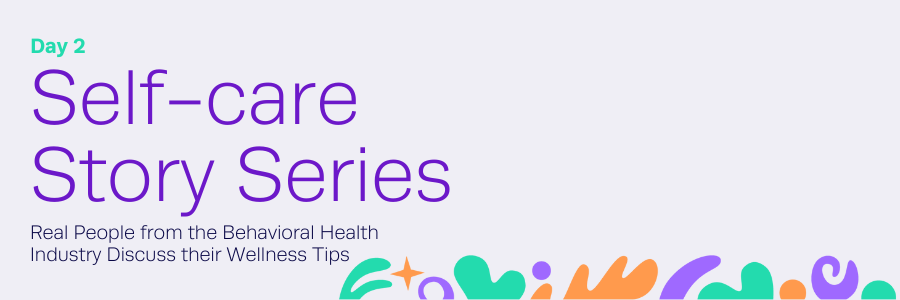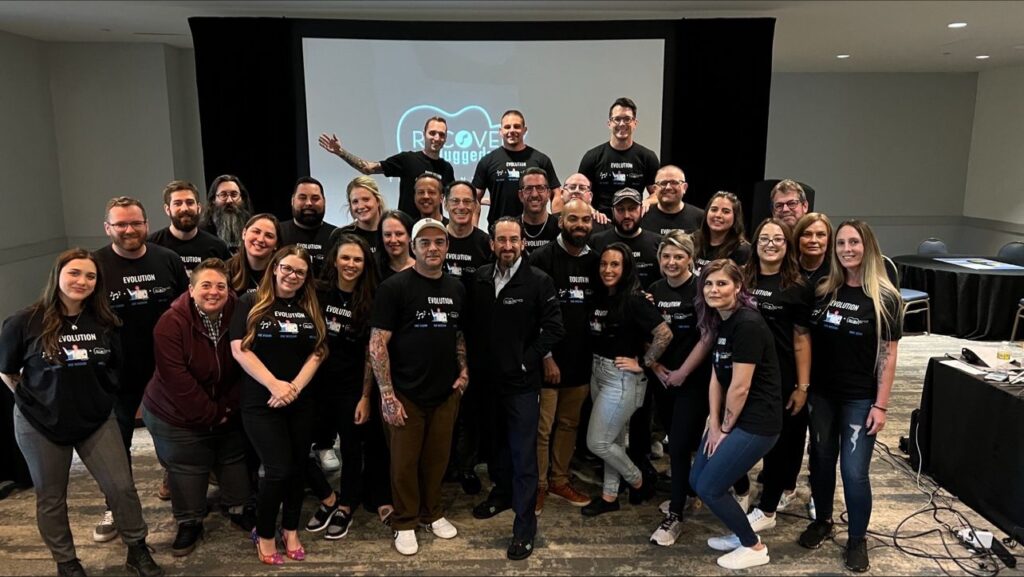Day 2: Self-care Stories Series

Welcome back to the second day of our self-care story series. Yesterday Alyssa Shapper from Banyan Treatment Centers discusses the importance of communication and self-care in the behavioral health industry. Burnout comprises our life in and outside of work, having physical and emotional repercussions. It has an impact on our capacity to engage with clients and within an organization which is the core of our industry. When our staff is strong, our patients are strong. Today, Gregory Roselle, Content Manager, and Gabby Cohen, Social Media Manager, from Recovery Unplugged discuss their self-care routines and the importance of keeping your teammates accountable when it comes to boundaries.
Accountability in the Workplace

How do you or your team members address burnout?
Gregory Roselle: The simplest answer is just asking for help, right? I would say Gabby and I are best at this, in our department specifically. But you are never in it alone. And granted I am speaking of where we work. I know some environments are not so hospitable but when you have a team behind you, it’s not like everything always falls on your shoulders. So, I mean that would be my answer. (1) As for help. And (2) find a balance. I don’t answer my emails past 5 o’clock. I will answer them a little earlier than I should in the morning, but my evening is my evening. I would say balance and communication are probably the shortest way of putting it.
Are there any resources or tips you share to prevent burnout?
Gregory Roselle: At the facilities they do a lot of team building, or staff appreciation I should say, in the afternoons. At least once a month, maybe closer to every other week, when the clients leave at 3 o’clock, they will have everyone turn off their computers, order food, and have a town hall where they can address the Executive Director and Clinical Director directly. This open forum is done with the clinical staff on a regular basis here. Also, any of our employees can text or email our CEO and he will buy them a five-minute journal and send it to your house because he strongly believes in that.
What does self-care mean to you?
Gregory Roselle: For me personally is enjoying myself. It’s not always about getting a massage or something like that, like a manicure. I like being outdoors. I hunt. I fish. I go away on the weekends pretty often and I won’t have service out there. I think that’s a blessing so I kind of go off the grid at the very least one weekend a month and just go outside. I don’t watch TV there, my phone doesn’t work out there, and I just get in touch with nature. That is my favorite form of self-care. Disconnecting is my form of self-care.
Gabby Cohen: I would say that mine changes based on my needs at the time. Whatever is going to fill me up. Sometimes it’s going out to Disney with my family and sometimes it’s staying in and watching movies on the couch with no plans. I think it fluctuates based on what the needs are but you got to make sure to stay in tune with it to feel fulfilled internally.
And your team?
Gabby Cohen: I send memes to Greg all the time haha.
Gregory Roselle: There is no formal operation in place, but we individually do it in our own ways.
What have you implemented in your life that has been a game changer for your mental health?
Gregory Roselle: I’ve got quite the routine. I wake up early every day. I wake up at five and the first thing I do is journal with my coffee. And it’s a prompted journal; I do better with that stuff rather than free-flowing organic journaling. So, mine consists of three positive affirmations, three goals that you set for the day, and three things you are grateful for in the morning. That’s how I start my day and then I go to the gym. And by the time 9 o’clock rolls around I’m in a very good headspace and then I finish my day with the evening prompt in my journal as well. Those are the three things I do every business day and it definitely is beneficial.
Gabby Cohen: I hear Greg’s regimented routine and I think it’s so cool! I do not want to wake up early, but I like that routine part. But, my wife and I like time to intentionally connect as a family. I think that’s my biggest one and then we fluctuate that. Most often it’s over coffee in the morning. We all work from home and we homeschool the kids so we make time to sit and have time in the morning that has nothing to do with work or school is really important to us. So we sit down, have coffee together, and just connect as humans before the day starts. That’s probably a big one to not roll out of bed and roll into work. We also do the same at the end of the day intentionally disconnecting for dinner time together as a family. Even if it’s takeout or whatever, we sit down at the table, or my wife and I get together and we cook the meal and sit down. Those things have been total game changers, especially for work-from-home aspects to stop your day for a while.
What songs always boost your mood?
Gregory Roselle: Greta Van Fleet – Heat Above
Gabby Cohen: Everything is awful – the Decemberists
Speaking about songs that boost your mood… We have collaborated with Recovery Unplugged to provide you with two playlists: Mood Boosters and Hype. According to scientific research, music has a remarkable impact on people. It may assist stroke patients to recover their motor and cognitive function, reduce depressive symptoms in dementia patients, and even make surgical patients feel less pain and recover more quickly. Naturally, it may also be therapeutic. Click here if you need a mood booster or click here if you need to get hyped up!
For more resources, check out our blog. Keep up-to-date with the latest behavioral health news and industry practices by subscribing to our blog here!/
Recent Posts
Rely on Kipu to keep you ahead of change.
Subscribe to Kipu for behavioral health news, updates, community celebration, and product announcements.



